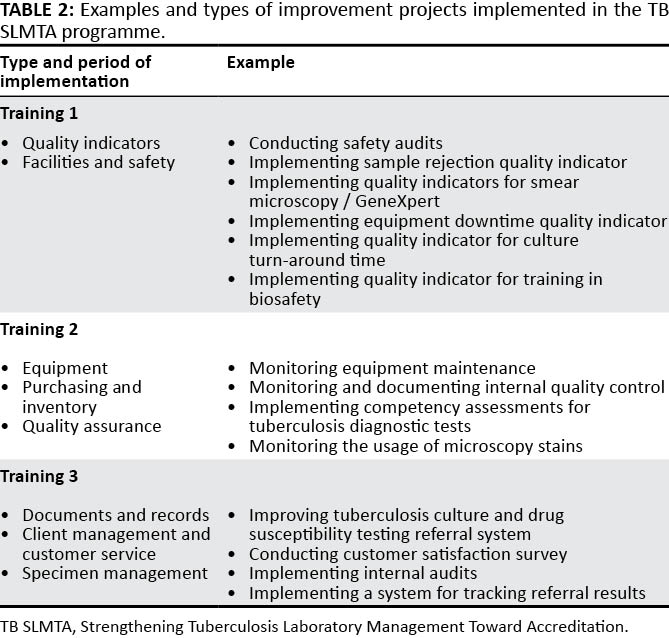Difference between revisions of "Template:Article of the week"
Shawndouglas (talk | contribs) (Updated article of the week text.) |
Shawndouglas (talk | contribs) (Updated article of the week text.) |
||
| Line 1: | Line 1: | ||
<div style="float: left; margin: 0.5em 0.9em 0.4em 0em;">[[File:Tab2 Albert AfricanJofLabMed2017 6-2.jpg|240px]]</div> | <div style="float: left; margin: 0.5em 0.9em 0.4em 0em;">[[File:Tab2 Albert AfricanJofLabMed2017 6-2.jpg|240px]]</div> | ||
'''"[[Journal: | '''"[[Journal:Information management for enabling systems medicine|Information management for enabling systems medicine]]"''' | ||
Systems medicine is a data-oriented approach in research and clinical practice to support the study and treatment of complex diseases. It relies on well-defined information management processes providing comprehensive and up-to-date information as the basis for [[Clinical decision support system|electronic decision support]]. The authors suggest a three-layer information technology (IT) architecture for systems medicine and a cyclic data management approach, including a knowledge base that is dynamically updated by extract, transform, and load (ETL) procedures. Decision support is suggested as case-based and rule-based components. Results are presented via a user interface to acknowledging clinical requirements in terms of time and complexity. The systems medicine application was implemented as a prototype. ('''[[Journal:Information management for enabling systems medicine|Full article...]]''')<br /> | |||
<br /> | <br /> | ||
''Recently featured'': | ''Recently featured'': | ||
: ▪ [[Journal:Developing a customized approach for strengthening tuberculosis laboratory quality management systems toward accreditation|Developing a customized approach for strengthening tuberculosis laboratory quality management systems toward accreditation]] | |||
: ▪ [[Journal:SistematX, an online web-based cheminformatics tool for data management of secondary metabolites|SistematX, an online web-based cheminformatics tool for data management of secondary metabolites]] | : ▪ [[Journal:SistematX, an online web-based cheminformatics tool for data management of secondary metabolites|SistematX, an online web-based cheminformatics tool for data management of secondary metabolites]] | ||
: ▪ [[Journal:Rethinking data sharing and human participant protection in social science research: Applications from the qualitative realm|Rethinking data sharing and human participant protection in social science research: Applications from the qualitative realm]] | : ▪ [[Journal:Rethinking data sharing and human participant protection in social science research: Applications from the qualitative realm|Rethinking data sharing and human participant protection in social science research: Applications from the qualitative realm]] | ||
Revision as of 16:38, 12 March 2018
"Information management for enabling systems medicine"
Systems medicine is a data-oriented approach in research and clinical practice to support the study and treatment of complex diseases. It relies on well-defined information management processes providing comprehensive and up-to-date information as the basis for electronic decision support. The authors suggest a three-layer information technology (IT) architecture for systems medicine and a cyclic data management approach, including a knowledge base that is dynamically updated by extract, transform, and load (ETL) procedures. Decision support is suggested as case-based and rule-based components. Results are presented via a user interface to acknowledging clinical requirements in terms of time and complexity. The systems medicine application was implemented as a prototype. (Full article...)
Recently featured:
- ▪ Developing a customized approach for strengthening tuberculosis laboratory quality management systems toward accreditation
- ▪ SistematX, an online web-based cheminformatics tool for data management of secondary metabolites
- ▪ Rethinking data sharing and human participant protection in social science research: Applications from the qualitative realm










